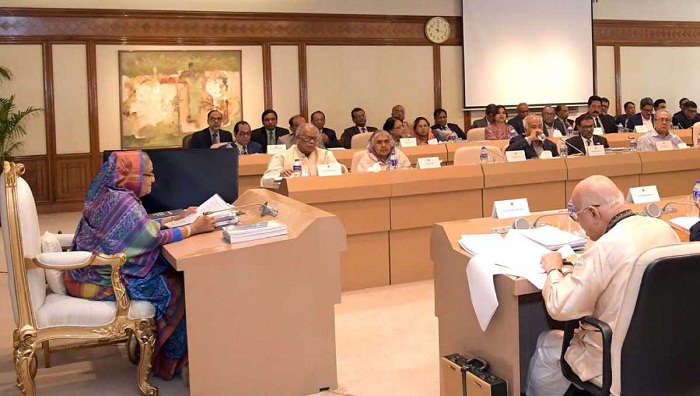Govt relaxes EPZ labour law

The government has relaxed the labour law for the export processing zones to ensure better rights of the workers employed in the special industrial parks.
The EPZ workers will now enjoy the freedom of association to realise their demands, according to the new amendments to the Bangladesh EPZ Labour Act approved by the cabinet yesterday.
Earlier, 30 percent workers' consent was required to form a Workers' Welfare Association (WWA) in a factory in the EPZ.
The requirement threshold has been lowered to 20 percent because of the pressure from international communities such as the EU, Canada, the International Labour Organization and the US, Cabinet Secretary Md Shafiul Alam told reporters after the weekly cabinet meeting at the secretariat.
The international communities have been putting pressure on the government to streamline the EPZ labour law with the country's main labour law, he said.
“The government has brought as much changes as needed to the EPZ labour law to streamline it with the main labour law of Bangladesh and to make it worker-friendly,” Alam said.
The names of the WWAs have not been changed. The existing WWAs will act like unions.
The amendment will allow the officials of the Department of Inspection for Factories and Establishments to inspect the factories housed inside the EPZs, apart from the officials of the Bangladesh Export Processing Zones Authority (Bepza).
Previously, only Bepza officials could inspect those factories.
The amendment also allowed the workers to constitute federation of WWAs.
The mandatory required consent of the workers for calling strikes and lockouts has also been lowered.
Now workers will be able to call strike or lockout with the consent of two-thirds of the workers instead of previous three-fourths. Workers will be able to write the constitutions of the WWAs in line with the main labour law.
The government has eliminated the provision of the option of 'qualified workers' under the section 103 of the EPZ law.
The election of the executive committees of WWAs will be held within six months of the end of the tenure of a committee, down from one year previously.
If a worker goes into retirement at the age of 60, after completion of 25 years in jobs, or he or she resigns, he or she will receive basic salary equivalent to 45 days for each year of their service, up from the existing 30 days.
If a worker completes 25 years in job, he will enjoy full compensation benefit.
Based on the opinions of the ILO, the US and the EU, the option for the referendum for formation of WWAs has been eliminated, the secretary said.
The amended law allowed formation of WWAs in new industrial units within three months of their operation. Previously, the workers had to go through 12 steps to form WWAs, but the amended law has reduced it to only three steps so that they can enjoy the freedom of association and bargaining.
The amended law guarantees job security to the elected leaders of WWAs in case of strikes and lockouts.
Factory owners have also given go-ahead to form associations. As of 2017-18, eight EPZs employed 502,013 workers, invested $4.69 billion and exported goods worth $6.66 billion, according to data from the Bepza.
